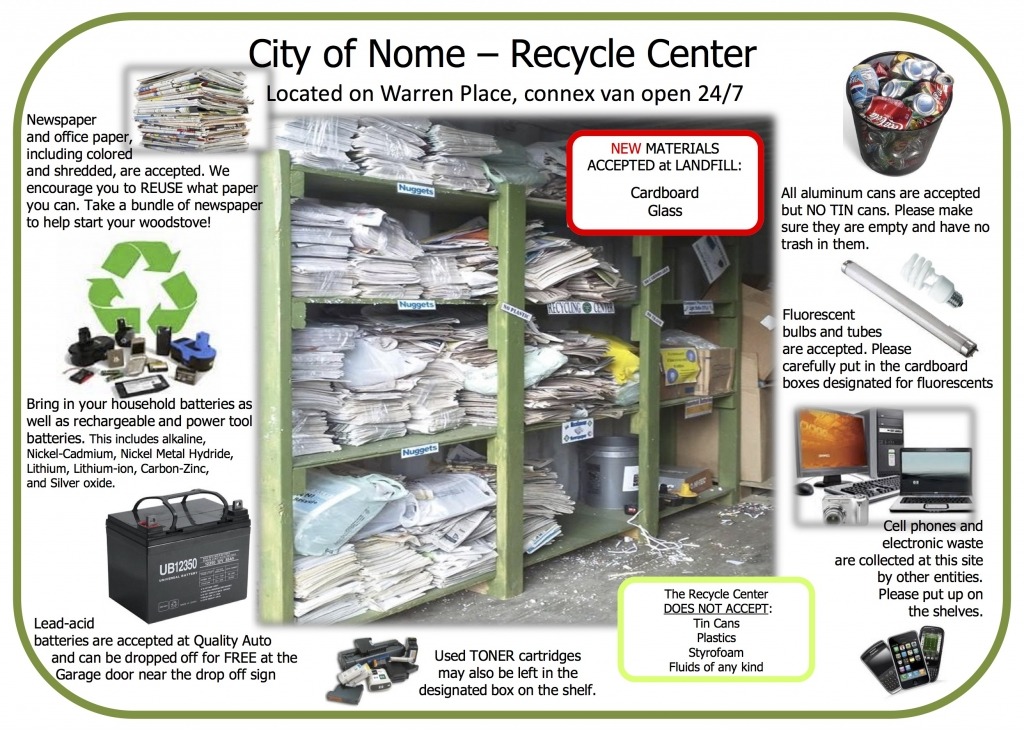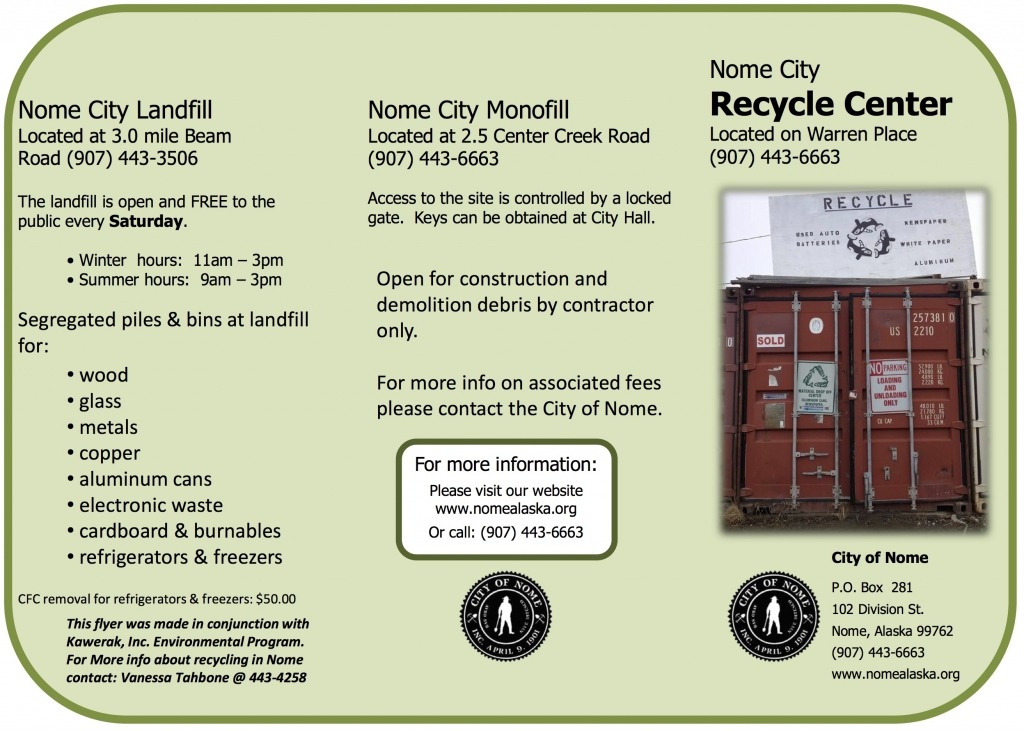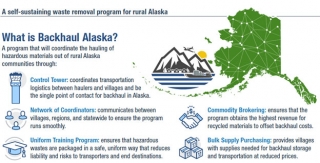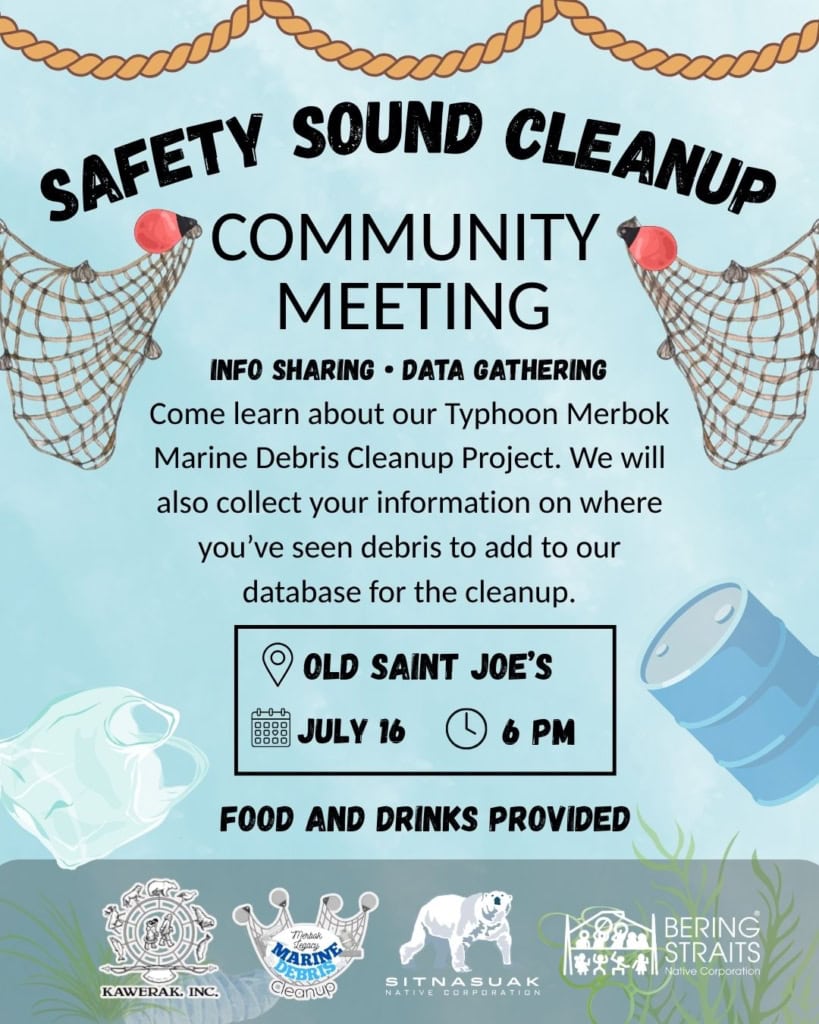ENVIRONMENTAL PROGRAM
ENVIRONMENTAL FORMS & APPLICATIONS
CONTACT INFORMATION
The Environmental Program was created because we understand the importance of being active positive stewards of our land and resources. We want to see our land continue to thrive for future generations, and in order to do so we need to care for it and protect it. Changes will come, but we must be prepared to meet these challenges utilizing safe practices, future planning, and smart preparation.
The Kawerak Backhaul Program provides technical assistance to tribal environmental programs, such as those funded by the Environmental Protection Agency Indian General Assistance Program (EPA IGAP). Our program hosts environmental trainings and conferences, assists villages with IGAP grant writing, accepts universal waste all year long (such as electronic waste, fluorescent bulbs, and lead-acid batteries), and assists with general backhauling logistics.
Through our program we help our region, on average, recycle approximately 75,000lbs. of material each year thereby keeping it out of unlined landfills and our environment.
To learn more about backhaul, recycling, or IGAP, please contact Environmental Coordinator Vanessa Tahbone at vtahbone@kawerak.org or (907) 443-4258.
The Contaminated Sites Program, including the Brownfields Program, is designed to help the region’s tribes and other stakeholders within villages work together to prevent, assess, clean-up and reuse brownfields and contaminated sites.
What is a Brownfield?
A Brownfield is a property with potential presence of contamination that is limiting the use of the site and creating a hazard to health and safety. Examples include, hazardous waste storage areas, previous fuel spills, abandoned and dilapidated buildings, abandoned bulk fuel tanks, drum dumps, generator buildings, former military sites, mining sites, and more. Many of these sites are documented in the State of Alaska Contaminated Sites Database, however, there may be sites that are not yet documented. This program will help communities create an inventory of brownfields, assess levels and types of contamination, and create plans for clean-up and reuse of the site as an asset to the community instead of a nuisance.
Find the region’s currently identified contaminated sites and learn how to report a contaminated site in your community here: https://kawerak.org/natural-resources/brownfield-program/
Kawerak received a three year grant to address debris with coordinated clean up efforts in the Bering Strait Region due to the impacts of Typhoon Merbok.
To learn more about the cleanup project, visit kawerak.org/cleanup.
The Environmental Program was created because we understand the importance of being active positive stewards of our land and resources. We want to see our land continue to thrive for future generations, and in order to do so we need to care for it and protect it. Changes will come, but we must be prepared to meet these challenges utilizing safe practices, future planning, and smart preparation.
The Kawerak Backhaul Program provides technical assistance to tribal environmental programs, such as those funded by the Environmental Protection Agency Indian General Assistance Program (EPA IGAP). Our program hosts environmental trainings and conferences, assists villages with IGAP grant writing, accepts universal waste all year long (such as electronic waste, fluorescent bulbs, and lead-acid batteries), and assists with general backhauling logistics.
Through our program we help our region, on average, recycle approximately 75,000lbs. of material each year thereby keeping it out of unlined landfills and our environment.
To learn more about backhaul, recycling, or IGAP, please contact Environmental Coordinator Vanessa Tahbone at vtahbone@kawerak.org or (907) 443-4258.
The Contaminated Sites Program, including the Brownfields Program, is designed to help the region’s tribes and other stakeholders within villages work together to prevent, assess, clean-up and reuse brownfields and contaminated sites.
What is a Brownfield?
A Brownfield is a property with potential presence of contamination that is limiting the use of the site and creating a hazard to health and safety. Examples include, hazardous waste storage areas, previous fuel spills, abandoned and dilapidated buildings, abandoned bulk fuel tanks, drum dumps, generator buildings, former military sites, mining sites, and more. Many of these sites are documented in the State of Alaska Contaminated Sites Database, however, there may be sites that are not yet documented. This program will help communities create an inventory of brownfields, assess levels and types of contamination, and create plans for clean-up and reuse of the site as an asset to the community instead of a nuisance.
Find the region’s currently identified contaminated sites and learn how to report a contaminated site in your community here: https://kawerak.org/natural-resources/brownfield-program/
Kawerak received a three year grant to address debris with coordinated clean up efforts in the Bering Strait Region due to the impacts of Typhoon Merbok.
To learn more about the cleanup project, visit kawerak.org/cleanup.
ENVIRONMENTAL FORMS & APPLICATIONS
Lead acid battery recycling:
How to package batteries
Materials needed
Pallet specifications
For IGAP workers:
ALPAR’s Flying Cans Program
Guidance for IGAP program





